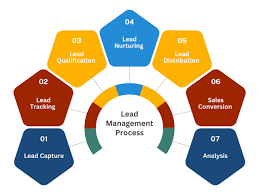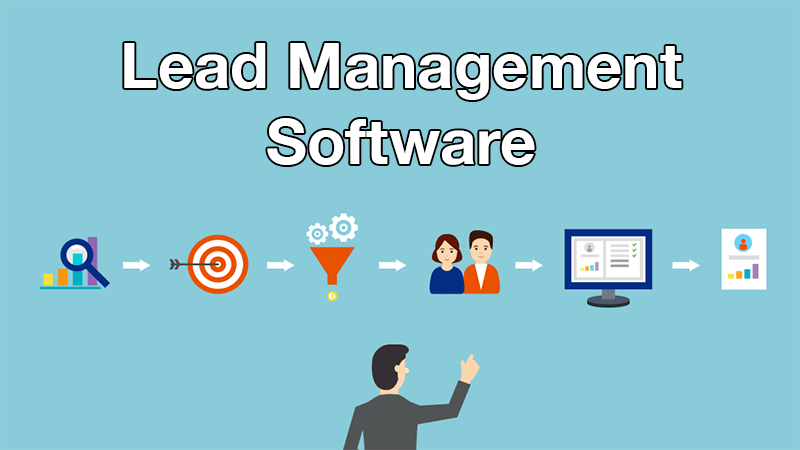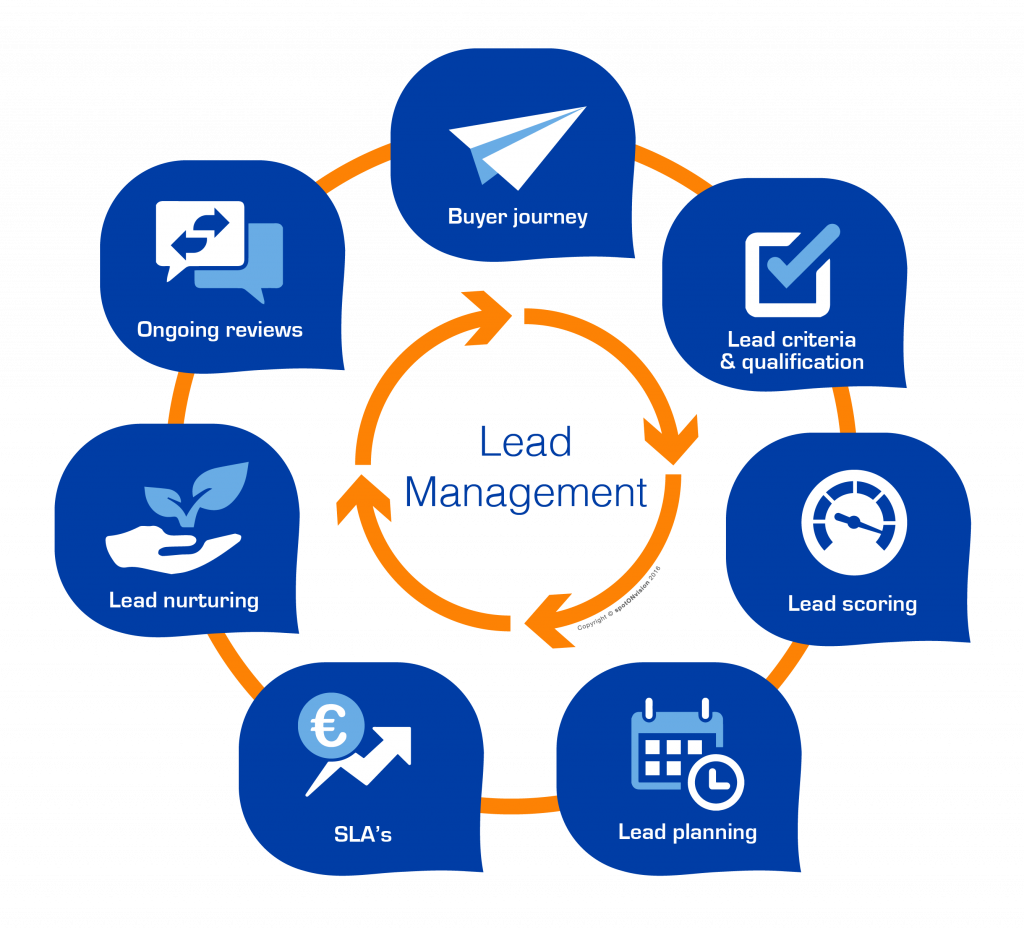


Leads Management Software helps you capture, organize, and convert potential customers effortlessly. With an easy-to-use interface and real-time tracking, you can follow up faster and close more deals. This smart solution is perfect for UAE businesses aiming to boost sales by streamlining their sales process from the first inquiry to final conversion. Whether you’re a start-up or an established company, our software empowers your team to prioritize leads, automate follow-ups, and turn every opportunity into success—efficiently and professionally.
Manage and convert leads effortlessly with smart software that streamlines your sales process.
Grow your UAE business by tracking every opportunity from start to finish.Capture, organize, and follow up with prospects in one easy-to-use platform.
Boost sales efficiency with tools built for fast decision-making.Never miss a potential customer again—automate and track all your leads in real-time.
Perfect for fast-growing businesses in the UAE market.Simplify lead management with a powerful solution designed for UAE businesses.
From inquiry to conversion, handle every step with ease and accuracy.Close deals faster by managing leads with clarity, speed, and control.
Ideal for entrepreneurs and enterprises looking to scale.Stay ahead of your competition with intuitive, cloud-based lead management tools.
Designed to fit the dynamic pace of UAE’s business world.Smart software to turn inquiries into loyal customers—efficiently and professionally.
Handle every lead with precision, no matter your industry.Track, prioritize, and convert leads with one seamless solution.
Make better decisions with real-time data and automation.
Leads Management Software is a digital tool designed to assist businesses in tracking and managing potential customers, commonly referred to as leads, throughout the sales process. This technology serves to streamline interactions with these prospects, allowing sales teams to effectively nurture relationships and ultimately convert leads into paying clients. By organizing and optimizing the management of leads, companies can enhance their sales efficiency and increase revenue.
More Info About : Leads Management Software
One of the primary functions of Leads Management Software is to provide a centralized platform where businesses can store and manage information related to their leads. This includes vital data such as contact information, communication history, and stage in the sales funnel. With this software, users can easily identify the status of each lead and prioritize follow-ups accordingly, making the sales process more efficient.
Leads Management Software can vary significantly in terms of features and suitability, catering to different business sizes and industries. For small businesses, basic tools might include lead capture forms, email integration, and simple reporting functionalities. In contrast, larger enterprises often benefit from more comprehensive solutions that offer advanced analytics, automated marketing functionalities, and integration with other systems like Customer Relationship Management (CRM) software.
Moreover, some Leads Management Software platforms are specialized, focusing on a specific market niche, while others provide a more ubiquitous solution suitable for various sectors. This diversity allows businesses of all scales to select software that aligns with their specific needs, ensuring they effectively manage and convert prospects into loyal customers. Ultimately, the deployment of Leads Management Software is vital for any organization aiming to refine its sales strategy and achieve growth.
Key Features of Effective Leads Management Software
Effective leads management software possesses a range of key features that are instrumental in enhancing the efficiency of sales teams. One of the most critical functionalities is lead scoring, which enables businesses to prioritize leads based on their likelihood to convert. By assigning scores to leads based on various parameters such as engagement, demographics, and past interactions, sales teams can focus their efforts on the most promising opportunities.
Another vital feature is automated follow-ups. This functionality automates reminders and outreach tasks, ensuring that no lead falls through the cracks. Automated follow-ups can be tailored based on the lead’s behaviour, such as opening emails or attending webinars, which personalizes the communication and fosters stronger relationships. By automating these tasks, sales teams save time and reduce the risk of human error, leading to a more efficient workflow.
Integration capabilities with customer relationship management (CRM) systems is also essential in today’s sales environment. A seamless connection between leads management software and CRMs allows for a centralized approach to managing leads, facilitating data sharing and improving collaboration across teams. This integration ensures that all relevant information about leads is accessible, thus enhancing the overall customer experience.
Moreover, reporting and analytics features provide insights into lead performance and sales processes. By offering detailed reports on conversion rates, lead sources, and sales activities, these features empower sales teams to make data-driven decisions. Such analytics help in refining the sales strategy and improving the efficiency of lead nurturing efforts.
Finally, a user-friendly interface is crucial for ensuring that sales teams can navigate the software efficiently. A well-designed interface minimizes the learning curve and allows users to leverage the software’s full potential, ultimately enhancing overall productivity. In conclusion, incorporating these key features into leads management software can significantly boost sales efficiency and foster better lead nurturing throughout the sales funnel.
Benefits of Using Leads Management Software
Adopting leads management software provides numerous advantages that significantly enhance a business’s efficiency in handling leads. One of the primary benefits is the remarkable increase in sales efficiency. By automating routine tasks such as data entry and follow-ups, sales teams can dedicate more time to engaging with potential customers. This not only speeds up the sales process but also allows for a more personalized approach, leading to higher conversion rates.
Furthermore, leads management software offers powerful analytics capabilities that provide businesses with deeper insights into their lead generation and conversion processes. By analysing various metrics, such as email open rates, response times, and customer interactions, organizations can identify what strategies yield the best results. This data-driven approach allows businesses to refine their marketing strategies, quickly pivoting to optimize performances and maximize returns on investments (ROI).
Enhanced communication is another significant advantage of implementing leads management software. With a centralized platform, team members can easily share updates, notes, and feedback regarding leads. This streamlined communication fosters collaboration among sales teams, ensuring everyone is aligned and informed about the status of potential deals. Improved communication not only boosts team morale but also enhances customer experience as clients receive timely updates and responses.
Numerous case studies highlight the successful implementation of leads management software within various organizations. For instance, a small technology company adopted this software and saw a 40% increase in lead conversion rates within just six months. Regular testimonials from satisfied users echo these sentiments, emphasizing how adopting leads management software has positively impacted their sales processes.
Overall, the versatility and functionality of leads management software present substantial opportunities for businesses looking to enhance their sales strategies and improve lead handling efficiency.
Choosing the Right Leads Management Software for Your Business
Selecting the appropriate leads management software is critical in enhancing the efficiency and effectiveness of sales operations. The ideal software should be tailored to meet your specific business requirements while accommodating future growth. One of the foremost considerations during this selection process is the budget. Determine a clear financial plan that outlines the maximum investment for software acquisition and ongoing costs, ensuring that the solution chosen provides value in relation to its cost.
Another important factor to consider is scalability. As your business grows, the leads management software should be able to handle an increasing volume of leads without sacrificing performance or usability. It is advisable to look for features that support this scalability, such as customizable fields, additional user licenses, and integration capabilities with other tools used within your operations.
Ease of use is vital, as user adoption can heavily influence the success of any software implementation. opt for software with an intuitive interface that allows your sales team to navigate and utilize its features without extensive training. Additionally, consider the level of customer support offered by the software provider. Responsive and knowledgeable support can significantly reduce downtime and help troubleshoot any potential issues that may arise.
Lastly, integration with existing tools is a key element. Ensure that the leads management software can seamlessly connect with your current systems, such as CRM software, email marketing tools, and other sales resources. This interconnectedness enhances data accuracy and improves operational workflows. Conducting thorough research, including reading software reviews, engaging with existing users, and seeking demo trials, will further guide you in making a well-informed decision that aligns with your operational needs and goals.



